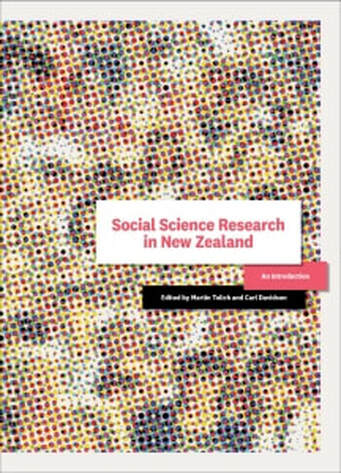
edited by Martin Tolich and Carl Davidson
This book’s focus, made clear right from the mihi whakatau (traditional greeting) that precedes the introduction, is on New Zealand and particularly on the responsibilities social scientists in this country have towards Māori and the spirit and detail of the Treaty of Waitangi.
It is in part a manual for social science students, particularly post-graduate students required to embark on their own research projects, and as such it succeeds very well indeed.
The sections of the book that are devoted specifically to the mechanics of research (mostly written by the editors, who are both sociologists) provide a meticulous guide, covering everything from an understanding of the purpose of research, through research design and the collection and analysis of data, and the drafting, testing and redrafting of the results.
The relative merits and problems associated with quantitative and qualitative research methods and inductive and deductive logic are considered, and by the time the last chapter is reached the contributions of the various authors make it seem self-evident that a mixed approach is almost always the best one to adopt.
An especially welcome feature of the technical sections is that the authors have explained the associated terminology so lucidly that such jargon is revealed to be simply a kind of precise and useful short-hand, and not the hermeneutic obfuscation that it might otherwise be taken for.
Both students and the general reader will find much of interest in those sections of the book that provide illustrations of the techniques described, and that demonstrate some of the directions that Social Science research in New Zealand is taking. This is fascinating stuff, and, for the student, will stimulate a desire to undertake research of their own.
But the editors asked the contributors to ensure that they wrote for ‘an educated lay audience rather than an academic or technical one’, and indeed the non-specialist reader will gain much from, for example, Barry Smith’s section on ‘Research with Māori’ and Lily George’s analysis of the complexities and tensions relating to the same issue, and from Marita Leask’s feminist perspectives, Louisa Allen’s engaging account on the use of photo elicitation and analysis, and Susan Morton’s description of the techniques involved in longitudinal research undertaken in the ‘Growing up in New Zealand’ Study.
The book demonstrates inter-disciplinary approaches that add depth and value to research in the social sciences, and how the borders between social science and the humanities are more apparent than real. As examples, Chris Brickell’s essay tracing what it meant (and means) to be a teenager in New Zealand relies largely on historical records, and Jane Kelsey’s article on secondary sources makes incisive comments regarding the way rhetoric and secrecy are used to influence attitudes and outcomes. Though not specifically discussed, no doubt literature and the other arts could also contribute to an understanding of social issues.
In the conclusion, the editors remind us that social research results help shape public debate and government policies, and thus the laws. An understanding of how research works is therefore of importance to us all. This book goes a long way towards providing just such an understanding, and it does so in a way that is stimulating as well as enlightening.
Authors: Martin Tolich and Carl DavidsonPublisher: Auckland University Press
ISBN: 9781869408848
RRP: $69.99
Available: bookshops

 RSS Feed
RSS Feed
